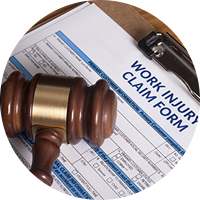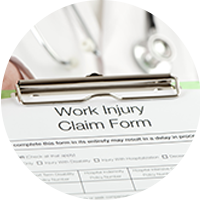
Workers’ Compensation Overview
Basics Of The Business
An Inside Look at the Regulations that Drive the Industry
Under the workers' compensation system, employers are required to provide coverage to employees who suffer work-related injuries and illnesses. Workers' compensation is governed by each state's system, which can differ from one to the next. However, the structure and operation of the overall workers' compensation system is largely the same across the board.
To find out the details of your state's law, contact your state department of industrial relations or workers' compensation. You can also find information on state workers' compensation laws at the U.S. Department of Labor's website, www.dol.gov.

What Does Workers' Compensation Cover?
Workers' compensation laws only cover work-related injury or illness. But, the injury or illness does not necessarily have to occur in the workplace. As long as it's job-related, it's covered. For example, employees are covered if they are injured while traveling on business, running a work-related errand, or attending a business-related social function. Covered injuries and illnesses can range from sudden accidents -- such as falling off a scaffold -- to injuries that develop over time, such as repetitive stress injuries (RSIs), or illnesses from exposure to workplace chemicals.
What Are an Employer's Responsibilities for Workers' Compensation?
Employers have several obligations under the workers' compensation system. If these requirements are not met, employers can be fined and injured employees may be able file suit against an employer.
-
 Carry Workers' Compensation Insurance
Carry Workers' Compensation InsuranceIf a business lacks the workers' compensation coverage required by law, employees may file a lawsuit against the business in civil court or, in some states, file a workers' compensation claim against a special uninsured employers fund (for instance, California has the Uninsured Employers Benefits Trust Fund).
-
 Post Notices and Advise Employees of Their Legal Rights
Post Notices and Advise Employees of Their Legal RightsEmployers must post required notices in a convenient location frequented by employees during working hours. The notices or posters contain important information about employees' rights and provide the name of the company's workers' compensation carrier, or the fact that the employer is self-insured, as well as who is responsible for claims adjustment; state that injured workers have the right to receive medical treatment and to select or change treating doctors; and give details about available workers' compensation benefits.
-
 Provide Claim Forms to Injured Employers
Provide Claim Forms to Injured EmployersEmployers must typically provide injured employees with a workers' compensation claim form within 24 hours of receiving notice of the injury. Employers must also supply the employee with written information (usually a pamphlet) about the employee's rights under the workers' compensation system. The written material should provide details about available benefits and how to file a claim.